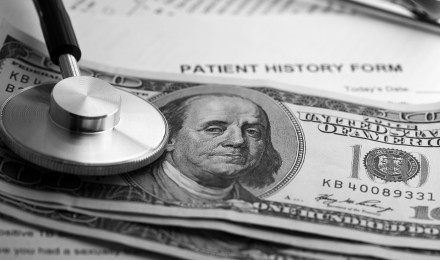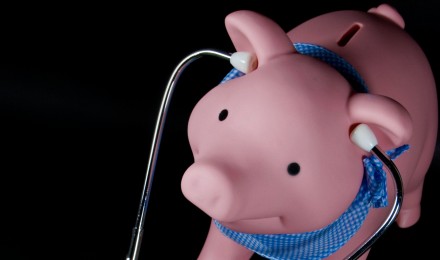The headline has no typo. Reliable pharmaceutical sources say that if patients and doctors used prescription medication more thoughtfully, a minimum of $213 billion in medication related health care costs each year can be avoided, by reducing the overuse of drugs, the underuse of medications along with other glitches that make for medical complications, longer treatment time, and more-expensive care options. Patients play a large part in this problem and pay for it with lost time, more copays, and lengthy recovery times.
The IMS Institute for Health Care Informatics is a section of the IMS Health, a data analysis and consulting firm for the pharmaceutical industry.
IMS Health has a proprietary data collection system on prescriptions written by doctors. They also have other resources that allowed the Institute to create a current and reliable estimate of avoidable costs solely related to the use of medication.
In an interview with the Associated Press, Murray Aitkin, director of the IMS Institute for Health Care Informatics said that the number one issue is patient’s non-compliance – either not taking prescribed medication at all or taking it as directed.
Non-compliance has long been pegged as a major problem that is thought to occur from patients fearing drug side effects, patients not informed or understanding the complications that happen when medication is forgone, patients with mental health issues, and the cost of medications.
It’s Up to You
It is a cliché, but you can be part of the problem or part of the solution. Here are some things you can do:
Take your medication exactly as your doctor prescribed it. Routinely, pharmacies package your prescription with a “Patient Medication Guide.” Read it, and if you have any questions, contact your doctor or pharmacist. Never discontinue your medication without discussing it first with your doctor. The Institute claims $105 billion can be saved by patient compliance. Increased cost of drugs is less of a problem with many medications now available as generics and programs to provide the needy with discounted or free medication.
Do not expect or ask for an antibiotic. If you need it your doctor will order it. Frequently, busy physicians prescribe an antibiotic because the patient expects a powerful prescription in exchange for the patient coming to the office. Doctors are at fault for caving in on inappropriate antibiotic orders, for instance an antibiotic for the flu. The flu is a virus and not a bacterial infection, so an antibiotic is useless. It is a good idea to ask your doctor if the prescription for an antibiotic is necessary. The report claims that $35 billion can be saved by appropriate antibiotic use.
Another major category that is clearly due to physicians is medication errors. Doctors often have extraordinary bad handwriting that pharmacists often read incorrectly and dispense the wrong drug or the wrong dose. This is slowly becoming less of a problem and computerized health records automatically send prescriptions to pharmacies. Even so, when the doctor gives you a prescription, ask the name of the drug and the dosage. If you are forgetful as I am, jot it down. The annual cost of medication errors is $20 billion.
Doctors writing for brand name drugs rather than generics cost the health care system $12 billion each year.
Elderly people often take five or more drugs prescribed by their doctor. This can lead to multiple medication confusion – at a cost of $1.3 billion. The institute reports that this problem will become more significant as the Baby Boomers move from junior-senior citizens to senior-senior citizens.
Do your part and be a partner with your doctor regarding your medications, follow your provider’s instructions so that your illness is stopped before you need avoidable care that is more expensive.
The headline has no typo. Reliable pharmaceutical sources say that if patients and doctors used prescription medication more thoughtfully, a minimum of $213 billion in medication related health care costs each year can be avoided, by reducing the overuse of drugs, the underuse of medications along with other glitches that make for medical complications, longer treatment time, and more-expensive care options. Patients play a large part in this problem and pay for it with lost time, more copays, and lengthy recovery times.
The IMS Institute for Health Care Informatics is a section of the IMS Health, a data analysis and consulting firm for the pharmaceutical industry.
IMS Health has a proprietary data collection system on prescriptions written by doctors. They also have other resources that allowed the Institute to create a current and reliable estimate of avoidable costs solely related to the use of medication.
In an interview with the Associated Press, Murray Aitkin, director of the IMS Institute for Health Care Informatics said that the number one issue is patient’s non-compliance – either not taking prescribed medication at all or taking it as directed.
Non-compliance has long been pegged as a major problem that is thought to occur from patients fearing drug side effects, patients not informed or understanding the complications that happen when medication is forgone, patients with mental health issues, and the cost of medications.
It’s Up to You
It is a cliché, but you can be part of the problem or part of the solution. Here are some things you can do:
Take your medication exactly as your doctor prescribed it. Routinely, pharmacies package your prescription with a “Patient Medication Guide.” Read it, and if you have any questions, contact your doctor or pharmacist. Never discontinue your medication without discussing it first with your doctor. The Institute claims $105 billion can be saved by patient compliance. Increased cost of drugs is less of a problem with many medications now available as generics and programs to provide the needy with discounted or free medication.
Do not expect or ask for an antibiotic. If you need it your doctor will order it. Frequently, busy physicians prescribe an antibiotic because the patient expects a powerful prescription in exchange for the patient coming to the office. Doctors are at fault for caving in on inappropriate antibiotic orders, for instance an antibiotic for the flu. The flu is a virus and not a bacterial infection, so an antibiotic is useless. It is a good idea to ask your doctor if the prescription for an antibiotic is necessary. The report claims that $35 billion can be saved by appropriate antibiotic use.
Another major category that is clearly due to physicians is medication errors. Doctors often have extraordinary bad handwriting that pharmacists often read incorrectly and dispense the wrong drug or the wrong dose. This is slowly becoming less of a problem and computerized health records automatically send prescriptions to pharmacies. Even so, when the doctor gives you a prescription, ask the name of the drug and the dosage. If you are forgetful as I am, jot it down. The annual cost of medication errors is $20 billion.
Doctors writing for brand name drugs rather than generics cost the health care system $12 billion each year.
Elderly people often take five or more drugs prescribed by their doctor. This can lead to multiple medication confusion – at a cost of $1.3 billion. The institute reports that this problem will become more significant as the Baby Boomers move from junior-senior citizens to senior-senior citizens.
Do your part and be a partner with your doctor regarding your medications, follow your provider’s instructions so that your illness is stopped before you need avoidable care that is more expensive.







